According to the World Health Organization (WHO) , counterfeit drugs are a leading threat to public health, especially in low- and middle-income countries. Faced with the complex developments of counterfeit drugs in Vietnam, Tien Phong Newspaper has pioneered the "bridge" between the press and the health sector (manufacturers and distributors) and education (Associate Professors and Doctors of the University of Medicine and Pharmacy, Ho Chi Minh City); at the same time, invited representatives of the Ministry of Health, the Department of Drug Administration, representatives of the Ho Chi Minh City Bar Association, and the Ho Chi Minh City Market Management Department to participate in the discussion.
Chairing the workshop, Deputy Minister of Health - Do Xuan Tuyen raised the current status of pharmaceutical management. Why are there fake drugs and fake functional foods on the market? This is related to 2 issues: First is the institution and second is whether the enforcement organization is really serious, in accordance with its role and responsibility? Currently, the Ministry of Health allows functional food manufacturing enterprises to self-publish their records. However, within 7 days, the state management agency will review and if they do not meet the requirements, they will be revoked.
Deputy Director of the Drug Administration Department - Ta Manh Hung affirmed: “Drug management cannot rely solely on documents. To fight counterfeit drugs, the entire system must be synchronized, from laws, enforcement organizations, technology, to awareness of businesses and people. This is a long-term battle, we cannot be subjective”.
From a clinical perspective, Dr. Pharmacist Nguyen Quoc Binh - Deputy Director of Cho Ray Hospital, Ho Chi Minh City, presented the content: "Harmful effects of counterfeit drugs and prevention and control measures". He clearly stated the role of pharmacovigilance is to detect, evaluate, and prevent adverse effects related to the use of drugs. He emphasized the three biggest dangers when using counterfeit drugs and poor quality drugs : One is wasting the "golden time" for treating diseases; two is the risk of introducing foreign substances and toxic substances into the body; and three is increasing drug interactions, forcing the body's two detoxification organs, the liver and kidneys, to work excessively, leading to increased treatment costs. To ensure patient safety, in clinical practice, it is necessary to provide more information on drug safety and drug use management to help minimize harm and save treatment costs. Hospitals have done a good job of reporting adverse drug reactions (ADRs). It is hoped that the pharmacy system needs to strengthen monitoring and report ADRs to the National DI & ADR Center.
MSc. Nguyen Thi Truc Van - Deputy Head of the General Planning Department, Ho Chi Minh City Drug Testing Institute, presented the paper "Testing and preventing counterfeit drugs at Ho Chi Minh City Drug Testing Institute". There are 2 levels of drug quality control: the Central Drug Testing Institute and the Local Drug Testing Center. The drug quality management and inspection system is being implemented very strictly. The most difficult to prevent is functional foods because herbal medicines without proof of origin and source must be clinically tested, while health protection foods are self-declared by the manufacturing facility. Ho Chi Minh City Drug Testing Institute hopes that a technology application system is needed, capable of connecting data between management agencies and related units to control the entire drug supply chain.
According to Circular No. 18/2019/TT-BYT, dated July 17, 2019 of the Ministry of Health, health protection foods must be produced in a factory that meets GMP (Good Manufacturing Practices) standards, the factory's testing room must strictly carry out the qualitative and quantitative assessment of semi-finished products to finished products. The retail and packaging stages must be clean, the information on the finished product label must match the declaration records to create standard products. In Chapter 7 of GMP-WHO, there is content on production and testing under contract. In Appendix 7, the production of herbal medicines applies to functional foods and Appendix 9 produces liquid preparations, creams, and fats applied to cosmetics. For imported health protection foods, there must be GMP and permission to circulate in the country of manufacture, a product declaration, a certificate of free sale (Certificate of Free Sale), and a registration number from the Vietnam Food Safety Administration to be circulated in Vietnam.
At the workshop, lawyer Phan Thanh Tam - Ho Chi Minh City Bar Association, talked about "What is the legal corridor for current pharmaceutical management?" From a lawyer's perspective, Mr. Tam commented that Article 194 of the current Penal Code is not deterrent enough. The act of trading in counterfeit drugs is only subject to a suspended sentence, which is not commensurate with the consequences and social risks. In addition, the coordination between the Ministry of Health , Police, Customs, Market Management, etc. is still fragmented and information sharing, early warning and case handling are not timely and lack consistency. Lawyer Tam proposed to perfect the legal system, eliminate overlaps, clearly define responsibilities, assign specific tasks (clear people, clear work, clear responsibilities) to strengthen state management and perfect the law.
Deputy Head of the Ho Chi Minh City Market Management Department - Nguyen Quang Huy with his speech "Tricks of selling fake functional foods to deceive authorities". The Ho Chi Minh City Market Management Department has strengthened management and supervision of the area, preventing and combating smuggling, trade fraud, and counterfeit goods for pharmaceutical cosmetics, functional foods, medicinal herbs, and traditional medicine, in which medicines and functional foods are identified as key items in regular inspection and control plans.
FPT Corporation presented a presentation on “Application of digital technology and big data in controlling the pharmaceutical supply chain”. Mr. Phan Thanh Son - Vice President, Director of Business Development of FPT Corporation, mentioned the digital transformation of the pharmaceutical industry in the new era, which requires assigning identification codes and QR codes to each type of medicine.
Mr. Ngo Quoc Bao - Senior Director of Communications and Customer Experience, FPT Long Chau Pharmacy System and Vaccination Center, affirmed: "Goods entering Long Chau must have full legal status, be licensed by competent authorities and meet standards. Long Chau has two platforms for people to access: directly and through the website".
Manufacturer and distributor Boston Pharma - Pharmacist Truong Quoc Dung - Deputy General Director of Sales, talked about "Quality control and anti-counterfeit drug strategy". Boston Pharma owns a production system that meets international standards such as EU-GMP and WHO-GMP. All input materials to semi-finished and finished products are strictly inspected, samples are stored and the company actively monitors the stability of the drug through the rapid and long-term aging cabinet system, ensuring that product quality is controlled throughout the time of circulation on the market. Boston Pharma also applies digital technology synchronously to the distribution system and customer care services. Customers can proactively check product information through the UID code to help trace the origin, increase transparency and effectively prevent counterfeiting. Post-inspection data from testing centers also reflects the effectiveness of Boston Pharma's quality control system.
Leading experts in all areas of the pharmaceutical supply chain from GMP, GLP, GDP, GSP to GPP had a frank discussion with each other, together raised the current situation of the problem of counterfeit drugs, proposed solutions to prevent counterfeit goods (without permission) and fake goods (without active ingredients for disease prevention and treatment) to protect the rights of consumers; at the same time, protect genuine manufacturers and businesses. The workshop agreed to propose solutions to prevent the problem of counterfeit drugs: increase administrative penalties, criminal penalties for acts of importing, producing, transporting, and trading counterfeit goods, strengthen inspection, especially local authorities will conduct surprise inspections of businesses with suspected counterfeit products; at the same time, improve the application of information technology, testing system capacity to detect counterfeit drugs.
The workshop “Counterfeit drugs – real consequences, what solutions to prevent them?” demonstrated the solidarity and coordination between departments and sectors with the common goal of taking care of people’s health, affirming that the press plays a pioneering role in protecting consumers by spreading information to help people distinguish fake and poor quality products to avoid potential health risks, accompanying all sectors on the journey of sustainable health care and protection for a prosperous Vietnam./.
DSCKII. Ly Thi Nhat Dinh
Source: https://baolongan.vn/mo-i-do-ng-thong-tin-la-mo-t-vien-thuoc-c-cu-u-nguo-i-a196030.html


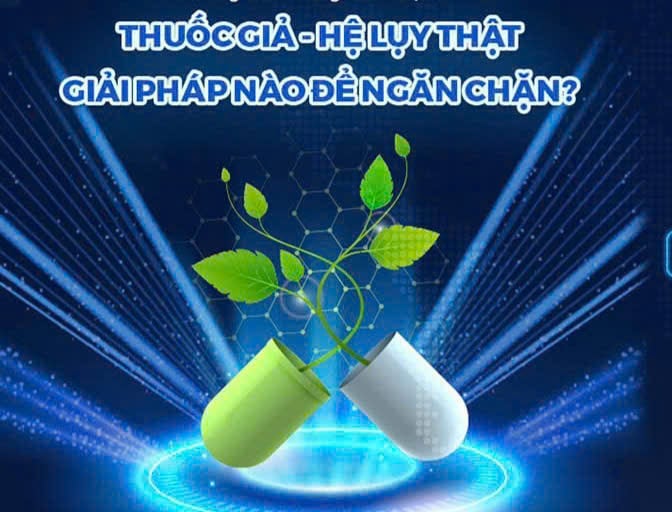
![[Photo] Prime Minister Pham Minh Chinh receives leaders of Excelerate Energy Group](https://vphoto.vietnam.vn/thumb/1200x675/vietnam/resource/IMAGE/2025/5/29/c1fbe073230443d0a5aae0bc264d07fe)



![[Photo] Prime Minister Pham Minh Chinh attends the event "Digital transformation of the banking industry by 2025"](https://vphoto.vietnam.vn/thumb/1200x675/vietnam/resource/IMAGE/2025/5/29/0e34cc7261d74e26b7f87cadff763eae)

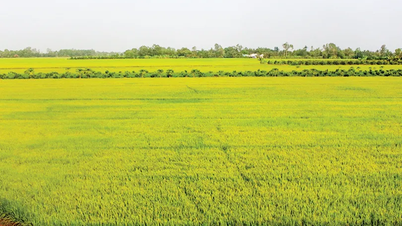

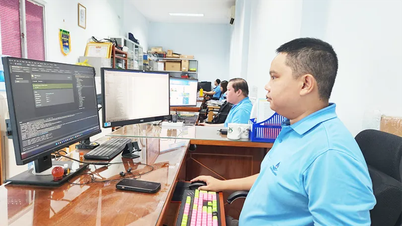


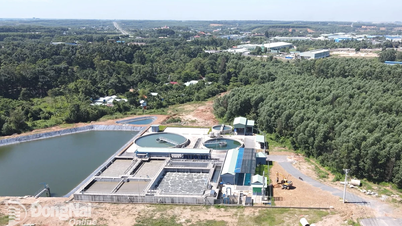
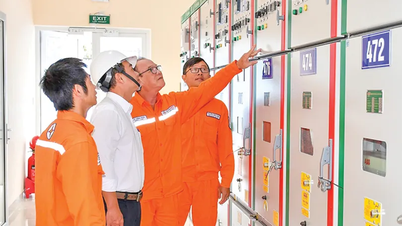
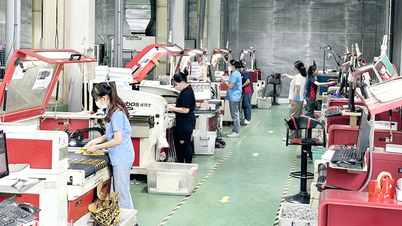




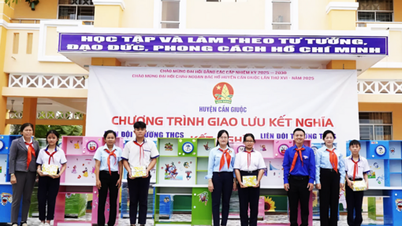

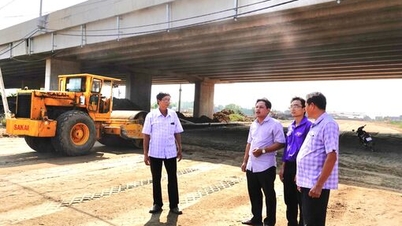
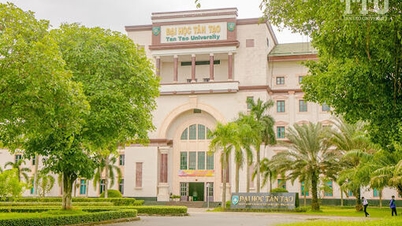

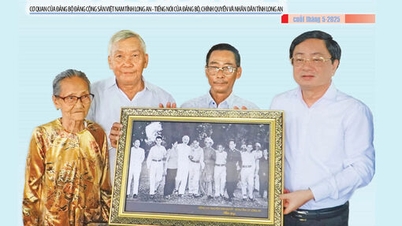



























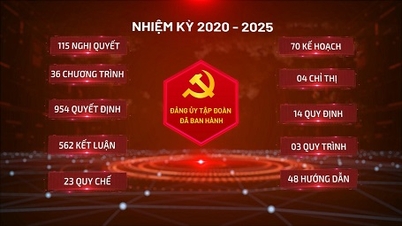


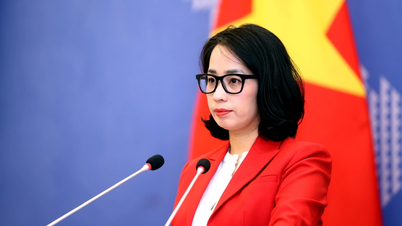







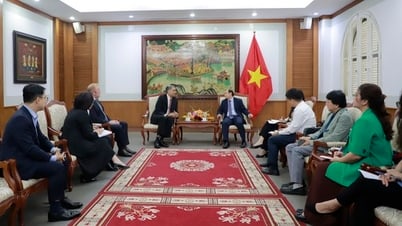
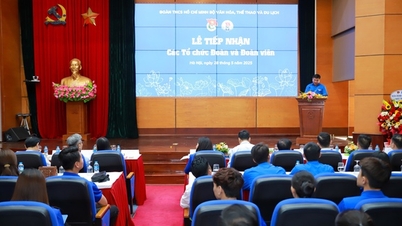

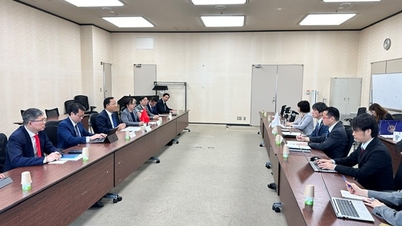

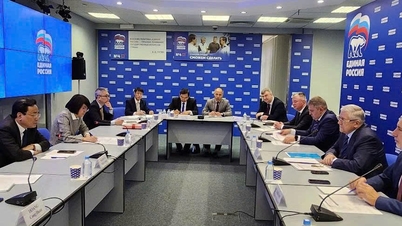

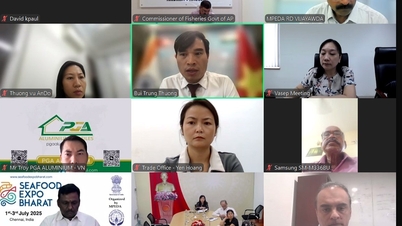
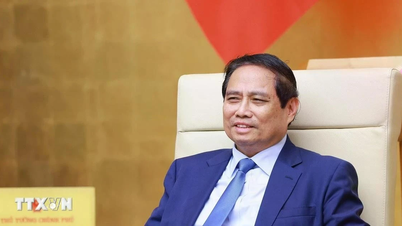

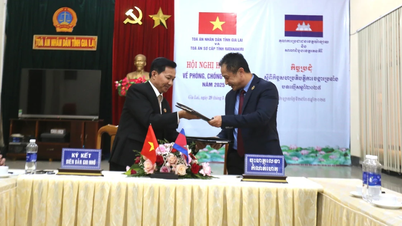

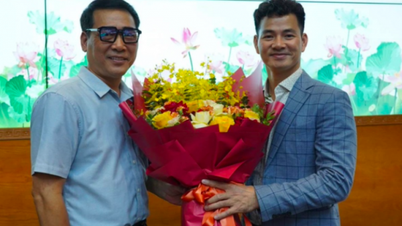


















Comment (0)